
Willem Drees Sr. was a Dutch politician of the Social Democratic Workers' Party (SDAP) and later co-founder of the Labour Party (PvdA) and historian who served as Prime Minister of the Netherlands from 7 August 1948 to 22 December 1958.

Radboud University (abbreviated as RU, Dutch: Radboud Universiteit, formerly Katholieke Universiteit Nijmegen) is a public research university located in Nijmegen, the Netherlands. RU has seven faculties and more than 24,000 students.

Femke Halsema is a Dutch politician and filmmaker. On 27 June 2018, she was appointed Mayor of Amsterdam and began serving a six-year term on 12 July 2018. She is the first woman to hold the position on a non-interim basis. She previously was a member of the House of Representatives for the leftist green party, GroenLinks from 1998 to 2011, and served as the party's parliamentary leader from 2002 to 2010.

Louis Joseph Maria Beel was a Dutch politician of the Roman Catholic State Party (RKSP) and later co-founder of the Catholic People's Party (KVP) and jurist who served as Prime Minister of the Netherlands from 3 July 1946 until 7 August 1948 and from 22 December 1958 until 19 May 1959.
Johannes (Jan) Maria van der Lans was a Dutch professor in the psychology of religion at the Catholic University of Nijmegen.
The issue of the universal basic income gained prominence on the political agenda in Netherlands between the mid-1970s and mid-1990s but it has disappeared from the political agenda over the last fifteen years.
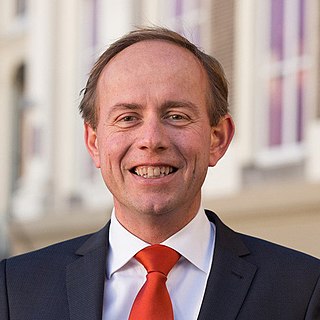
Cornelis Gerrit "Kees" van der Staaij is a Dutch politician who served as a member of the House of Representatives from 1998 to 2023 and Leader of the Reformed Political Party between 2010 and 2023. As a parliamentarian, he focused on matters of judiciary, home affairs, Kingdom relations, foreign policy, the European Union, development aid, the defense, public health, welfare, sports, immigration and political asylum. Van der Staaij had been the longest running member of the House of Representatives from 2017 until 2023.
There is a small population of Angolans in the Netherlands numbering around 10,000 people, largely consisting of refugees from the Angolan Civil War.

Pieter Herman Omtzigt is a Dutch politician who has served as a member of the House of Representatives since 2003 apart from a short interruption between June and October 2010. He was member of the Christian Democratic Appeal (CDA), but left in 2021 and continued as independent. In August 2023, he founded a new party called New Social Contract, its name taken from his 2021 manifesto. Three months later, his party won 20 out of 150 seats in the 2023 Dutch general election.
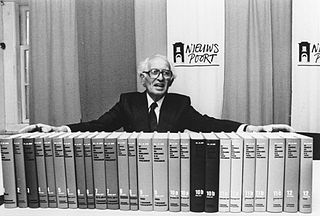
The Kingdom of the Netherlands During World War II is the standard reference on the history of the Netherlands during World War II. The series was written by Loe de Jong (1914–2005), director of the Dutch Institute for War Documentation, and was published between 1969 and 1991. The series contains 14 volumes, published in 29 parts. De Jong was commissioned to write the work in 1955 by the Ministry of Education, Culture and Science. The first volume appeared in 1969, and de Jong wrote his last in 1988. The final volume, containing critique and responses, appeared in 1991.

Henri Polak was a Dutch trade unionist and politician. Polak is best remembered as a longtime president of the General Diamond Workers' Union of the Netherlands (ANDB) and as a founder of the Dutch Social Democratic Workers' Party in 1894. Targeted as a Jew, a marxist, and a trade unionist, Polak was arrested by the Nazis in 1940 but died early in 1943 before he could be deported.
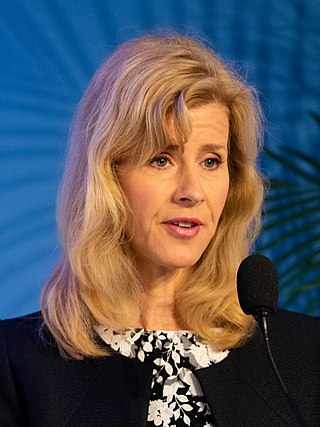
Maria Cornelia Gezina "Mona" Keijzer is a Dutch politician and former civil servant who is the minister of housing and spatial planning in the Schoof cabinet since 2024. A member of the Farmer–Citizen Movement, she won a seat in the House of Representatives in the 2023 Dutch general election.

Republicanism in the Netherlands is a movement that strives to abolish the Dutch monarchy and replace it with a republic. The popularity of the organised republican movement that seeks to abolish the monarchy in its entirety has been suggested to be a minority among the people of the Netherlands, according to opinion polls.
Hans Dirk de Vries Reilingh was a Dutch geographer and professor.

Renny Ramakers is a Dutch art historian, curator, design critic, and co-founder and director of the Droog design foundation. Ramakers writes articles, gives lectures, initiates projects and curates exhibitions in the field of art and design. In 2007 she was awarded the Benno Premsela Prize, in 2019 the IJprijs for her cultural contribution to the city of Amsterdam, and in 2018 she received a Dutch Royal Award for her work in the field of Dutch Design.
Anarchism in the Netherlands originated in the second half of the 19th century. Its roots lay in the radical and revolutionary ideologies of the labor movement, in anti-authoritarian socialism, the free thinkers and in numerous associations and organizations striving for a libertarian form of society. During the First World War, individuals and groups of syndicalists and anarchists of various currents worked together for conscientious objection and against government policies. The common resistance was directed against imperialism and militarism.
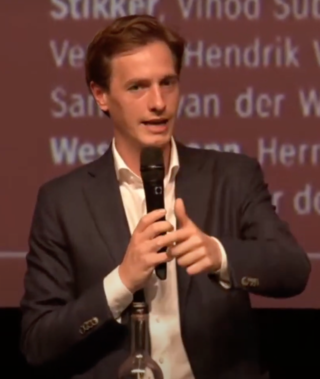
Laurens Antonius Josephus Maria Dassen is a Dutch politician and former banker. Dassen grew up in Knegsel, studied business administration at Radboud University and worked for ABN AMRO for six years. He has been a member of Volt Netherlands since its foundation in 2018 and was elected to the House of Representatives as his party's lijsttrekker in the 2021 general election.
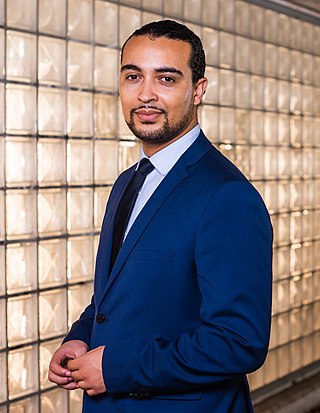
Don Guno Maria Ceder is a Dutch lawyer and politician, serving as a member of House of Representatives since the 2021 general election.

Pepijn van Houwelingen is a Dutch politician, who has been serving as member of the House of Representatives with a short pause since 2021. He is a member of the conservative populist party Forum for Democracy (FvD). Van Houwelingen holds a doctorate and has worked for the Netherlands Institute for Social Research for a decade.

Eric van der Burg is a Dutch politician, who served as State Secretary for Justice and Security in the fourth Rutte cabinet between January 2022 and July 2024. A member of the People's Party for Freedom and Democracy (VVD), he was elected to the Senate in 2019. Van der Burg previously had a lengthy political career in the municipality of Amsterdam which culminated in his brief service as ad interim Mayor of Amsterdam in 2017.















